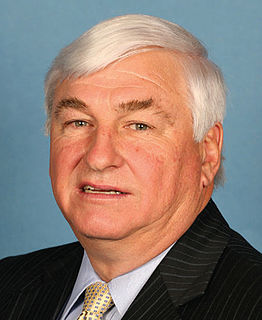A Quote by Sam Brownback
You can look at founding father Alexander Hamilton nevertheless assuring - assuring - the countrymen in Federalist 78 that the role of the federal courts under the proposed Constitution would be limited.
Related Quotes
In explaining the Constitution, James Madison, the acknowledged father of the Constitution, wrote in Federalist Paper 45: 'The powers delegated by the proposed Constitution to the Federal government are few and defined. Those which are to remain in the State governments are numerous and indefinite. The former will be exercised principally on external objects, as war, peach, negotiation, and foreign commerce.' Has the Constitution been amended to permit Congress to tax, spend and regulate as it pleases or have Americans said, 'To hell with the Constitution'?
Proper training and federal supervision in state-federal partnerships are essential to both assuring constitutional rights and enforcing our immigration laws. Our Founding Fathers' concept of federalism does not prohibit such cooperation, and we have learned from experience that joint efforts work best.
The complete independence of the courts of justice is peculiarly essential in a limited Constitution. By a limited Constitution, I understand one which contains certain specified exceptions to the legislative authority. Limitations of this kind can be preserved in practice no other way than through the medium of courts of justice, whose duty it must be to declare all acts contrary to the manifest tenor of the Constitution void. Without this, all the reservations of particular rights or privileges would amount to nothing.
All the real money in investment will have to be made as most of it has been in the past not out of buying and selling but out of owning and holding securities, receiving interests and dividends therein, and benefiting from their long-term increases in value. Hence stockholder's major energies and wisdom as investors should be directed toward assuring themselves of the best operating results from their corporations. This in turn means assuring themselves of fully honest and competent managements.
The proposed constitution, therefore, even when tested by the rules laid down by its antagonists, is, in strictness, neither a national nor a federal constitution; but a composition of both. In its foundation it is federal, not national; in the sources from which the ordinary powers of the government are drawn, it is partly federal, and partly national; in the operation of these powers, it is national, not federal; in the extent of them again, it is federal, not national; and finally, in the authoritative mode of introducing amendments, it is neither wholly federal, nor wholly national.
It [the Constitution] didn't break free from the essential constraints that were placed by the founding fathers in the Constitution, at least as it's been interpreted, and the Warren court interpreted it in the same way that generally the Constitution is a charter of negative liberties. It says what the states can't do to you, it says what the federal government can't do to you, but it doesn't say what the federal government or the state government must do on your behalf. And that hasn't shifted.
The states have authority to interpret the Constitution, enforce it, and protect the people from violations of it by the federal government In the first place, there is not a syllable in the plan under consideration which directly empowers the national courts to construe the laws according to the spirit of the Constitution, or which gives them any greater latitude in this respect than may be claimed by the courts of every State.
The Senate, compared to the House, is where things are supposed to slow down, by design, Founding Father design. The Founding Fathers were hell-bent to stop government action. The Constitution limited government. And that's why people like Obama and Democrats call it a charter of negative liberties because it limits government. It's an anti-government, pro-citizen document. And the founders wanted to make it hard.
If we stuck to the Constitution as written, we would have: no federal meddling in our schools; no Federal Reserve; no U.S. membership in the UN; no gun control; and no foreign aid. We would have no welfare for big corporations, or the "poor"; no American troops in 100 foreign countries; no NAFTA, GAT, or "fast-track"; no arrogant federal judges usurping states rights; no attacks on private property; no income tax. We could get rid of most of the agencies, and most of the budget. The government would be small, frugal, and limited.





























